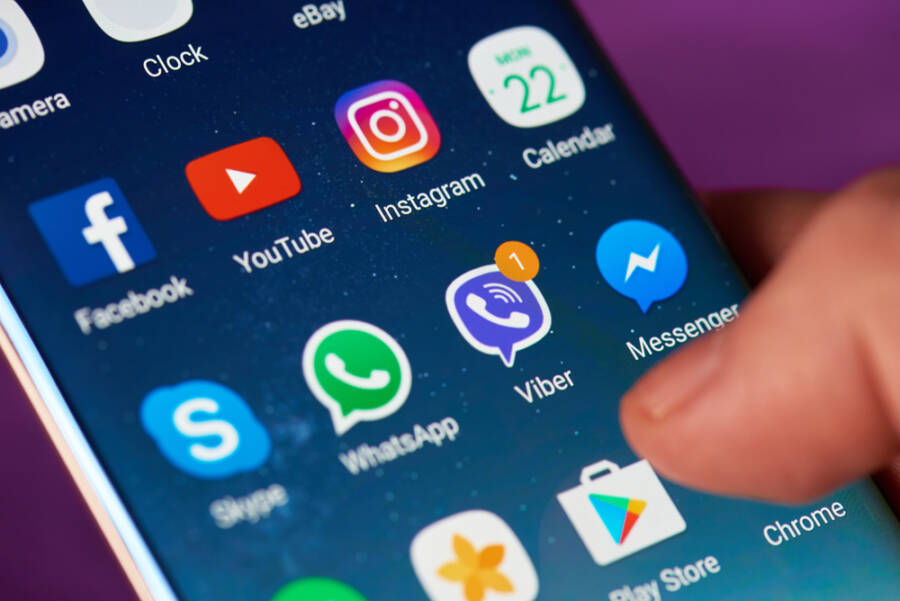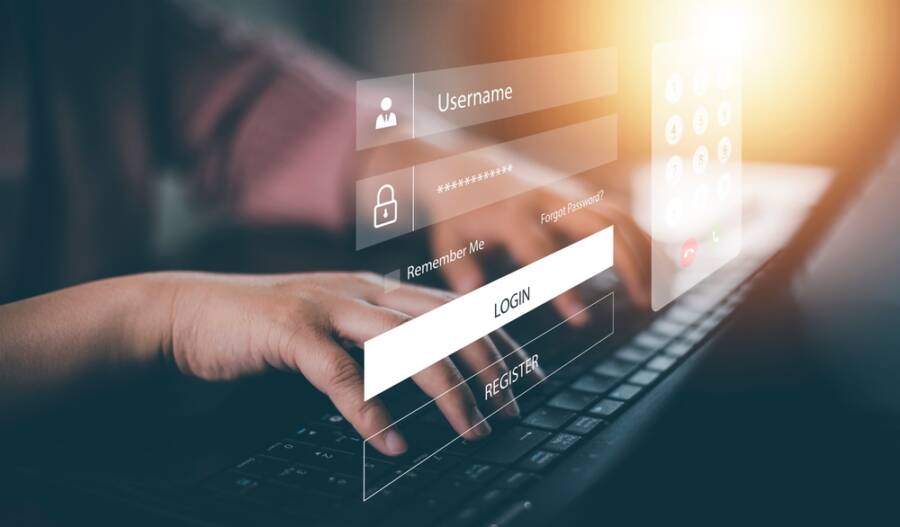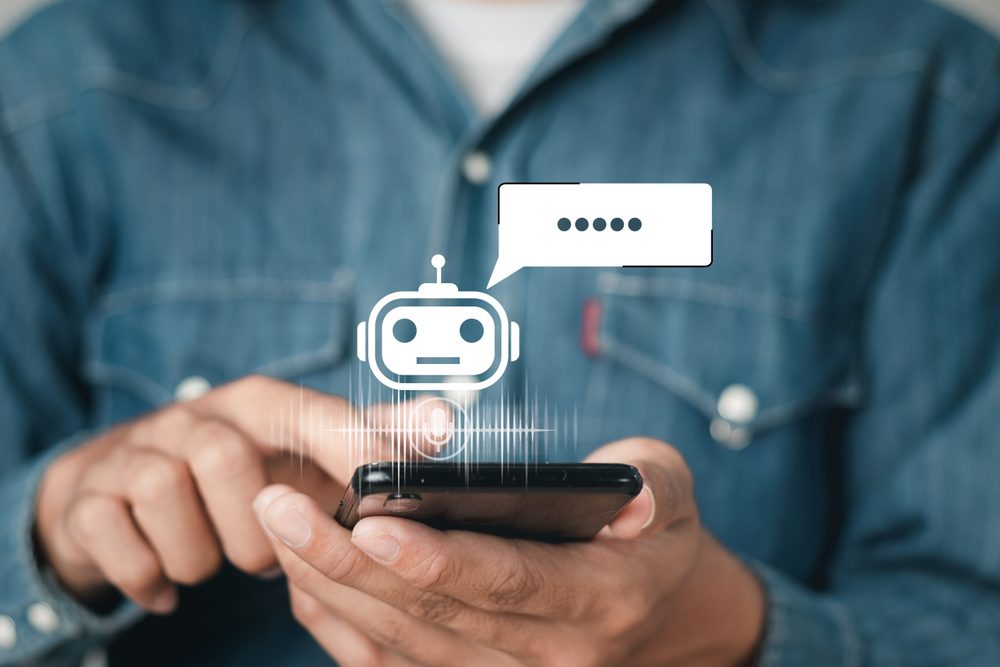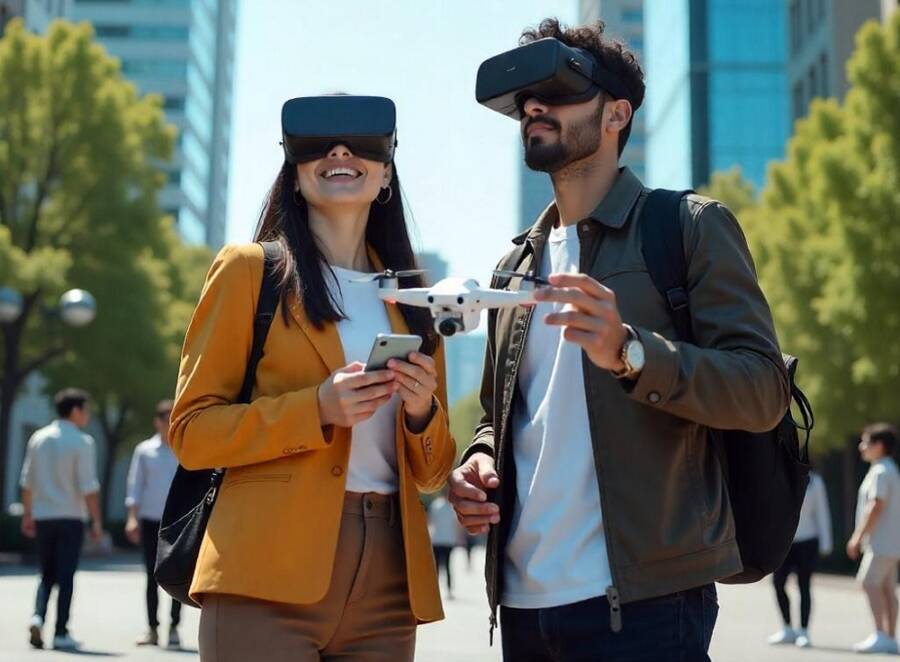Smartphone surveillance has become a reality we may have to face!
Smartphones are at an all-time high with consumers, and microphones are an essential hardware feature on every phone. But what does all this mean for your privacy if phones aren’t just used for calls anymore?
Voice-controlled “intelligent assistants” like Google Assistant, Apple’s Siri, and Microsoft’s Cortana are commonplace on today’s smartphones. We use them to set reminders, search for answers, and fix appointments.
Apps and games can also have microphone access. So how do we know when they’re listening, and what happens to the audio they record? Continue reading as Science In The World explores the ins and outs of smartphone surveillance!

Who’s using smartphone surveillance to listen to your conversations?
As far as we know, your recordings aren’t being listened to by an actual human being. Yet, companies are applying algorithms to search for patterns and determine if there are any potentially useful things about your interests and behaviors. Audio data could reveal all kinds of things.
The background noise on a smartphone surveillance could determine whether or not you’re in the kitchen or the bathtub. Background voices could also reveal who you’re with. Using the microphone to measure noise levels can even reveal when you’re sleeping.
Even if you think you’re not saying anything very worthwhile or interesting, the data gets mingled with lots of other types of data that can create a detailed picture of you, explains an expert. Most of these technologies aren’t in a vacuum. They’re not siloed and interact with every other type of technology we have.
What’s SilverPush, and what does it have to do with smartphone surveillance?
Last year, the CDT alerted the FTC of a technology called SilverPush. It uses audio beacons to effectively track your activities across all devices. This means that your TV emits a tone during a commercial break that’s indistinct to you, but your phone is hearing it. Now, they can link the phone and TV as belonging to the same person.
Advertisers have developed lots of strategies for device-matching because the more accurately they can follow your activities, the more straightforward it is for them to advertise to you. But it’s not hard to imagine other applications for this type of technology.
Any government interested in who you’re meeting with could potentially play a tone through the TV and virtually ping all the phones in the room, identifying the entire group through smartphone surveillance. You’re not alone if you fear that your phone might be listening to your exchanges.
The internet is teeming with anecdotal stories about digital snooping. Many folks already feel as though discussions they have within earshot of their phones are used to tailor advertising.

How is social media affected by smartphone surveillance?
After being accused of smartphone surveillance last summer, the folks over at Facebook released a short denial saying, “Facebook does not use your phone’s microphone to inform ads or to change what you see in News Feed…. We only access your microphone if you have given our app permission and actively use a specific feature that requires audio.”
So why were so many people convinced that this social media platform was listening in and changing advertising based on what was said? There are two possible reasons, says a professor at Carnegie Mellon University. “It’s either coincidence, or they were browsing on a website and happened to see that topic and then talked about it with friends later on.
Facebook is linked to many websites worldwide. So they collect data about what content you’re looking at and then base ads on that. But as far as we know, they’re not listening on the microphone. Facebook’s statement notably doesn’t say what it uses audio recordings for, though its business model is based on laser-focused advertising and data collection targeting.
You might feel like there are worse things than relevant adverts, but the implications may run a lot deeper than that.
Should you be worried about smartphone surveillance?
The audio space is still relatively immature compared to the techniques and tricks companies are using to track our overall online activity. Still, as our devices begin to listen in more and more, it’s an increasingly legitimate concern.
As more smart TVs, smartphones, and smart toys start listening in on us all the time, it’s going to be very hard for anyone to understand where all the data flows because every company wants to connect to its cloud service. This makes it a real nuisance, even for experts, to try and understand what’s happening.
The CDT believes there should be baseline privacy legislation to shield us, but it has also been trying to persuade companies that collecting less data is actually in their interests. They don’t even necessarily need all this information, increasing their potential legal liability.
Companies are collecting everything they can with the idea that they’ll figure out a use for it later. We all know what that really is, right?… HOARDING! Much of this is driven by a genuine belief that technology is making our lives better, but good intentions can be forgotten, and we don’t know how our data could be used down the line.
It isn’t easy to make an informed decision because we don’t know much about what’s happening behind the scenes. If you’re going to use these services on your smartphone, just remember that it’s not private.
It’s not your own personal assistant or a pal. It’s a small tracking device. So pay attention, watch out for default settings, and protect your privacy.

What can you do if you’re concerned about smartphone surveillance?
With services like Google Assistant and Siri, your phone is always listening for a keyword, but that’s processed depending on where you live. It doesn’t begin recording your audio until it hears “Hey, Siri” or “Ok, Google.”
That’s when it records and uploads an audio file. You can turn these features off, though. For instance, if you use an Android, go to Settings > Google > Search & Now > Voice and turn “Ok Google” detection off. Big corporations have a strong incentive to be primarily upfront about what they’re doing because the FTC and other government organizations would fine them if they were being deceptive.
There are also many researchers investigating these kinds of apps. It’s unlikely that they’ll listen uninvited. But the fact remains that what’s happening to your recordings is still unclear. Even if you take the time to read privacy policies, which people don’t really do, it’s usually far from easy to decipher them.
Maybe more worrying is the potential for a malicious app to turn on the microphone without you knowing. With GPS, at least there’s the little icon. So you know that an app is using it, but with the microphone and other sensor data, we don’t know what’s being caught and what’s not.
Sticking to popular apps and not granting microphone access to random things is a smart move. And don’t be the first to download an app after it gets released. Wait a few weeks. Apple and Google have ways of finding malicious apps and getting rid of them.” As always, if you see something suspicious, investigate!
What are your thoughts on all this smartphone surveillance that may be happening? Do you use Siri on a regular basis? Let us know in the comments section below.
And to learn more about how to be more tech savvy, check out: Navigating the Digital World After 60: How to Keep Up with the Rapidly Evolving Tech Landscape
Meanwhile, if you found this article interesting, we also recommend reading: Military Robots in Combat: Is It Ethical? And What Are the 6 Terrifying Risks?













